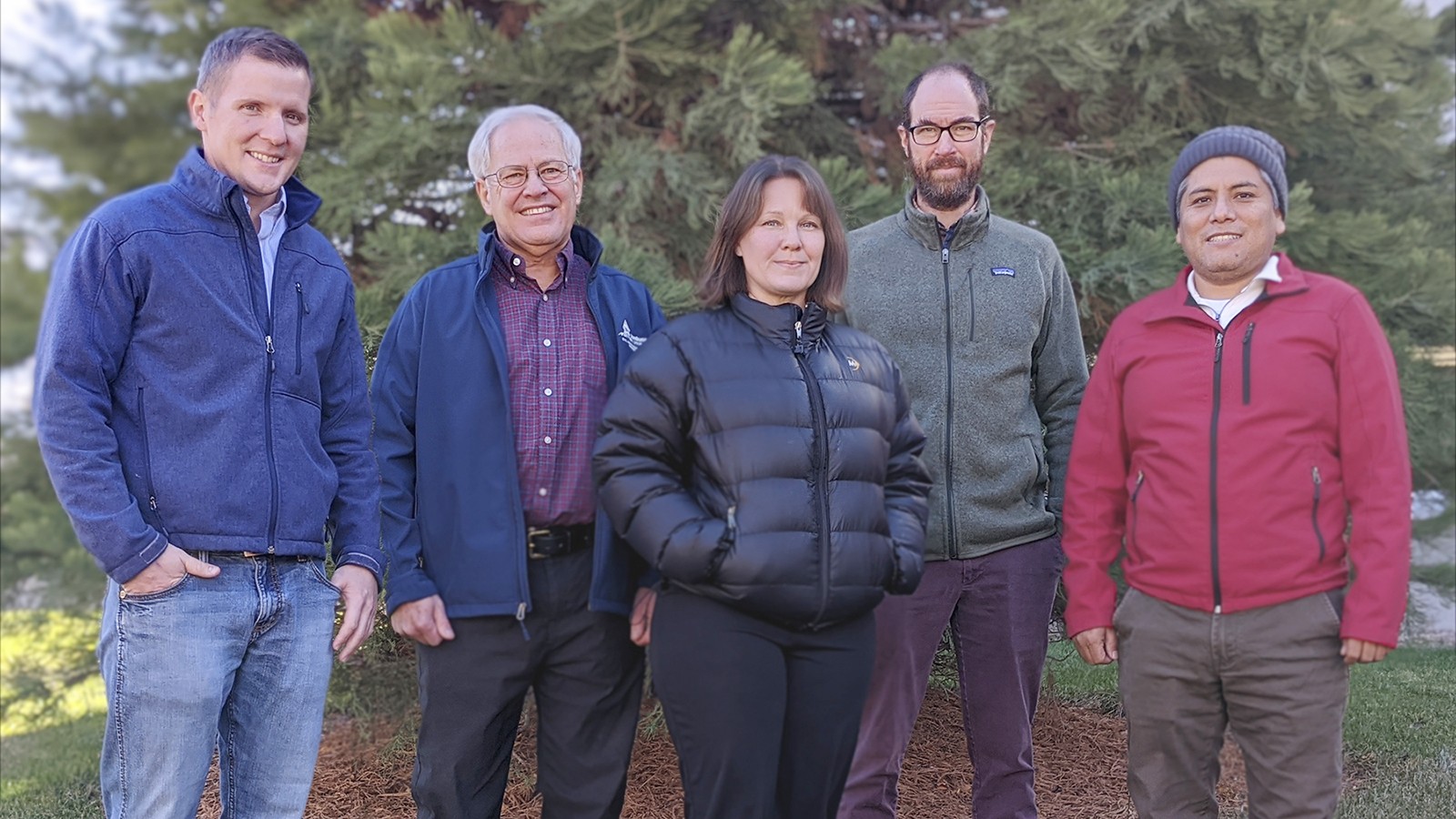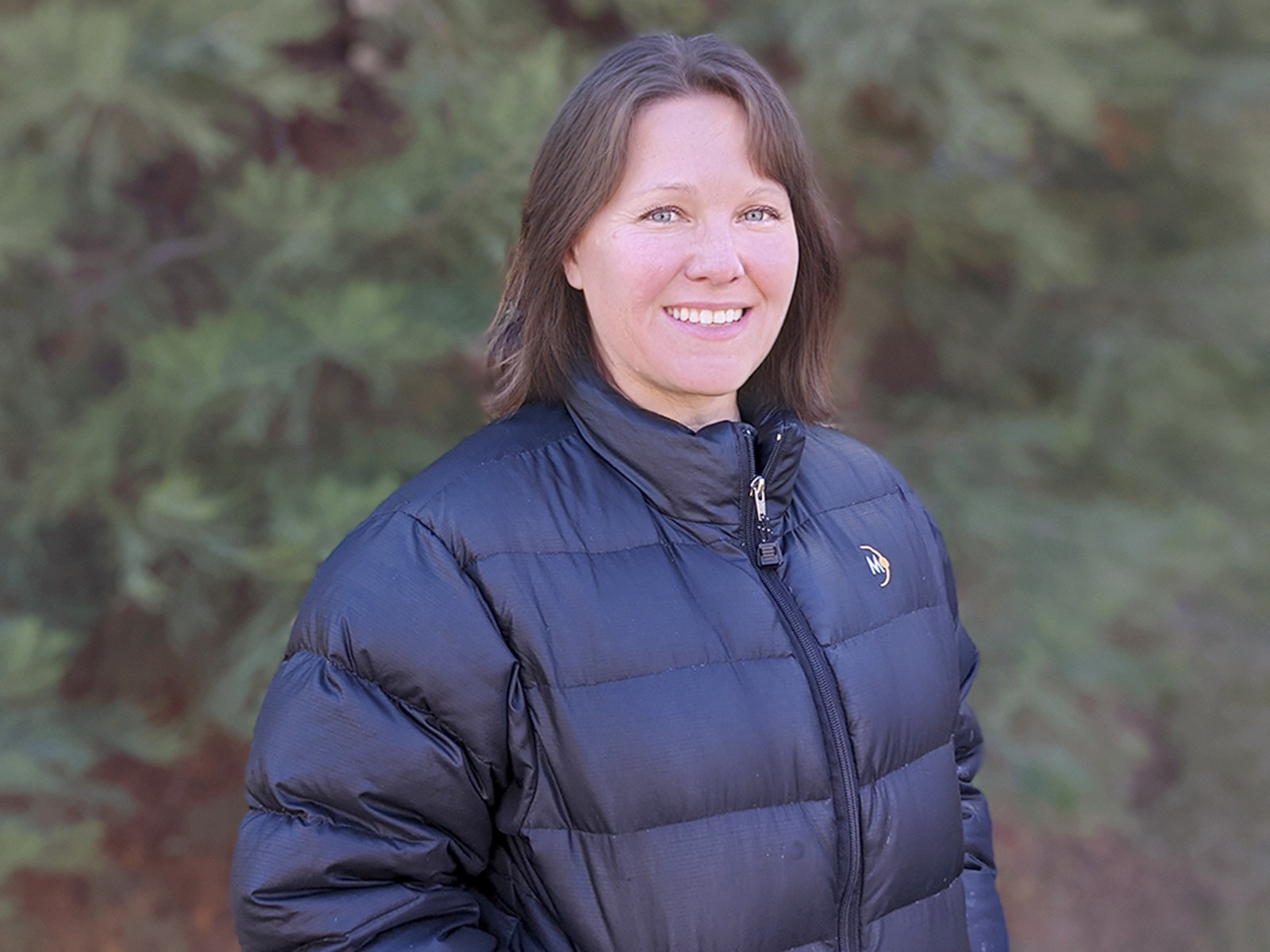Head Above Water: Major Grant Awarded for Research on Water Markets
By Lael Gilbert |
A new grant will allow researchers to determine how water markets can be used to make water management systems more resilient. The interdisciplinary team include (left to right) Matt Yost, Niel Allen, Sarah Null, David Rosenberg, and Alfonso Torres-Rua.
As a 20-year drought lingers in the U.S. and climate patterns shift in unexpected and problematic ways, at least one thing is clear—the old way of managing water can’t keep up. Pressure from expanding cities, inefficient irrigation practices and declining water tables have compounded water stress from droughts, creating a system in distress. But a major new project at Utah State University led by Sarah Null, an Associate Professor in the Department of Watershed Sciences and the Ecology Center, will investigate how water market strategies might respond to climate change and drought while supporting agriculture, ecosystems and communities.
“The approach we use now lacks flexibility,” said Null. “Growing pressure from urban populations, variable water resources for farms, and limited water for the environment make that point pretty obvious.”
With support from a new $10 million grant from the U.S. Department of Agriculture, USU researchers are working with a cohort of institutions to explore ways to make regional water management more resilient to change. The team includes experts in climate, water resources, economics, modeling, institutional design, transdisciplinary research, education and actionable outreach. USU will receive $1.8 million to support Null and co-investigators: Niel Allen, David Rosenberg, and Alfonso Torres-Rua from Civil and Environmental Engineering and Matt Yost from the Department of Plant, Soils and Climate.
Water markets allow water to be leased or sold, without changing or selling water rights. This strategy, when managed well, can encourage water conservation and allow willing sellers to lease extra water to farmers, cities, or the environment. The idea ties into Utah’s 2020 Water Banking Act to promote Utah’s agricultural economy and a healthy environment.
“Water markets are established and working well in places like California and Australia,” said Null. “The approach is promising to re-allocate water within Utah’s water law, but there’s a lot we still don’t understand about how it will work—how recharge and evapotranspiration shift during droughts and floods, why farmers choose to enter or avoid water markets, when surplus water could be purchased for environmental water uses, and the tools that farmers need to make better decisions in real time.”
A vital part of this project is understanding the reality for farmers, irrigation districts and other stakeholders. The researchers will work with agricultural practitioners and water managers at every step of the process.
“Water markets offer an opportunity for farmers, cities, and environmentalists to work together to optimize available water resources,” Null said.
The team will investigate how improvements in water measurement and management can help water markets to promote agricultural, environmental, economic and social resilience. Specifically, they’ll use models to determine how available data can improve decision making, how well the data reflect on-the-ground reality for water users, and the best way to communicate information about the water markets to stakeholders.
Other participating institutions include UC Merced, UC Berkeley, UC Davis, New Mexico State, Environmental Defense Fund, Public Policy Institute of California, and the USDA Southwest Climate Hub.
Sarah Null is leading the USU research team to understand how improvements in water measurement and management can help water markets promote agricultural, environmental, economic and social resilience.
WRITER
Lael Gilbert
Public Relations Specialist
Quinney College of Natural Resources
435-797-8455
lael.gilbert@usu.edu
CONTACT
Sarah Null
Associate Professor
Department of Watershed Sciences
435-797-1338
sarah.null@usu.edu
TOPICS
Research 878stories Environment 263stories Water 259stories Grants 228stories Climate 151stories Sustainability 145stories Conservation 82storiesComments and questions regarding this article may be directed to the contact person listed on this page.









